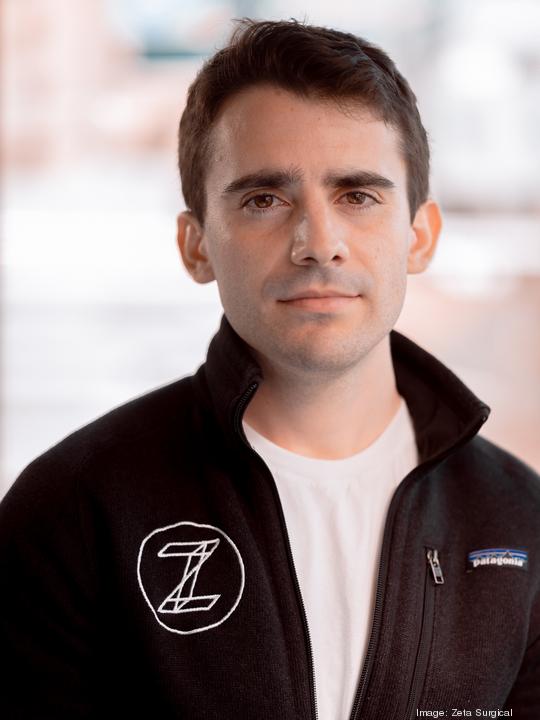
The brainchild of two Harvard classmates began as a mission to develop a way for surgeons to be able to deploy surgical guidance and robotics at the point of patient care.
Founded in 2018, Zeta Surgical aims to modernize the medical field through creating robotics technology that will guide surgeons through creating incisions in a way that can be done without patients having to go under anesthesia.
The company has developed a computer vision system that essentially allows mapping between a medical image, such as an MRI scan, which then creates a 3-D video application.
The technology then allows a robotic component to be deployed in the patient while they are awake and mobile to develop a guidance system for surgeons to use.
Zeta Surgical has entered an exclusive licensing agreement with Brigham and Women's Hospital. under which the company will perform its first clinical study as part of a research partnership with Singapore's National Neuroscience Institute.
“Large hospitals in Boston definitely have rigorous processes to go through to partner with other companies. It took a year to negotiate a deal,” said Jose Amich, founder and CEO of Zeta Surgical.
The company wants to focus its initial research on neurology, which typically are performed in emergency situations.
In seed funding alone, Zeta Surgical has raised $1.5 million in investments from Y Combinator, Artesian Venture Partners, Emles Venture Partners, Trevor Fetter and others.
The company hosts five full-time employees with plans to bring on software focused employees soon.
In comparison to competitors, Amich said, “our technology is like the first robotic and guidance platform that can be deployed on a fully awake patient at the bedside.”
Within the next year or so, the company is planning on going through the process to obtain FDA approval, and Amich says the company's business model is still being developed.
“We may provide the hardware for either a very small fee or for free to the standard, and then sell the disposable instrument. We did a lot through the platform. So that way the hospital is able to pay as they go. There's also a very good reimbursement for the case that we're focusing on. So that a hospital has a very clear way of getting paid by using this system,” Amich said.
Amich gives props to the company’s success simply due to being based in Boston. He himself is a transplant from Barcelona who decided to stay local after attending Harvard and scaling the company.
“We have the biggest network of collaborators here. Boston is really a very special place to develop biotech and medtech,” Amich said.



